GWE Forum Roundtable 3: Building the New Economy – the Role of the Weather Enterprise
Amongst the questions discussed were:
- What will our new economies look like and what weather-related information will be needed to support them?
- Is the global weather enterprise fit-for-purpose to produce the required information to enable the anticipated changes societies need to undergo?
- If not, what do we need to do to ensure that weather enterprise provides the right services for all?
Part 1 of the event features short interviews with two eminent economists (Johannes Linn, from the Brookings Institution and Stephane Hallegatte, the World Bank Senior Climate Change Advisor). Part 2 features a panel discussion with 6 panellists, including Johannes Linn and Stephane Hallegatte.
Interviewees:
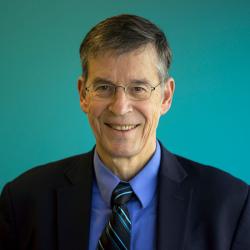
Dr. Johannes F. Linn is a Non-resident Senior Fellow at the Brookings Institution, a Distinguished Resident Scholar at the Emerging Markets Forum in Washington, D.C., a Senior Fellow at the Results for Development Institute, and a Senior Research Fellow at the International Initiative for Impact Evaluation. He is the co-founder and co-chair of the international Scaling Community of Practice, which currently has over 2,000 participants. Johannes currently serves as Global Facilitator for setting up and funding the Systematic Observations Financing Facility of the World Meteorological Organization. In 2011, 2014 and 2017 he chaired replenishment consultations of the International Fund for Agricultural Development and in 2019 the first replenishment of the Green Climate Fund. From 2005 to 2010 he was Director of the Wolfensohn Center for Development at Brookings. During this time, Johannes also served as Special Advisor to the Central Asia Regional Economic Cooperation Forum (CAREC). Prior to joining Brookings in 2003, he worked for three decades at the World Bank, including as the Bank’s Vice President for Financial Policy and Resource Mobilization and as Vice President for Europe and Central Asia. Johannes holds a bachelor’s degree from Oxford University and a doctorate in economics from Cornell University.
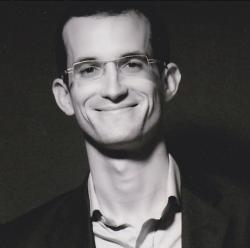
Dr. Stéphane Hallegatte is the Senior Climate Change Advisor of the World Bank Climate Change Group. He joined the World Bank in 2012 after 10 years of academic research. His research interests include the economics of natural disasters and risk management, climate change adaptation, urban policy and economics, climate change mitigation, and green growth. Stéphane was a lead author of the 5th Assessment Report of the Intergovernmental Panel on Climate Change (IPCC). He is the author of dozens of articles published in international journals in multiple disciplines and of several books. He also led several World Bank reports including Shock Waves: Managing the Impacts of Climate Change on Poverty in 2015, Unbreakable: Building the Resilience of the Poor in the Face of Natural Disasters in 2016, and Lifelines: The Resilient Infrastructure Opportunity in 2019. He also led the writing team of the Stern-Stiglitz High-Level Commission on Carbon Prices. He was the team leader for the first World Bank Group Climate Change Action Plan. In 2018, he received the Burtoni Award for his work on the link between climate change adaptation and poverty reduction. Stéphane holds an engineering degree from the Ecole Polytechnique (Paris) and a Ph.D. in economics from L’École des Hautes Études en Sciences Sociales (EHESS, Paris).
Panelists:
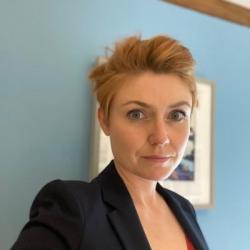
Dr. Nicola Ranger is the Head of Sustainable Finance Research for Development at the Oxford Sustainable Finance Group of the Smith School of Enterprise and the Environment, University of Oxford. She is also the Deputy Director of the UK Centre for Greening Finance and Investment. Nicola specializes in climate and environmental risk analytics, financial and fiscal risk management, and the role of finance in resilience and sustainability. She has almost two decades of experience in climate change and sustainable finance and has held roles in public policy, development finance, academia, and industry. Nicola joined Oxford from the World Bank, where she worked with Ministries of Finance, Central Banks, and regional institutions to strengthen financial resilience to climate change and other crises. Prior to this, she spent six years at the UK Department for International Development where she was lead advisor on risk financing. Nicola has written more than 30 book chapters and peer-reviewed articles, contributed to major reports including the UK National Climate Change Risk Assessment, the World Development Report 2010, etc. She also currently holds advisory positions with NGOs and the insurance sector on risk finance. Nicola holds a doctorate in Atmospheric Physics from Imperial College London.
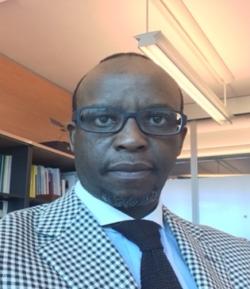
Mr. Jeremiah (Jerry) Lengoasa, is the Director and founder of Disaster Risk Solutions, an international consulting company based in Johannesburg, South Africa. He is a former Assistant Secretary-General and Deputy Secretary General of the WMO. He is a former CEO of the South African Weather Service a position he held on two occasions from 2003-2005 and 2017-2019. On both these occasions he served as the Permanent Representative of South Africa to the WMO and was a member of the WMO Executive Council. Jerry holds master’s degree in Climatology and another one in Public and Development Management both from the University of the Witwatersrand, Johannesburg (WITS) and an honors degree in Geography from the University of Fort Hare. Jerry was for several years a teacher and a university lecturer in Geography and Environmental studies before joining the public service as deputy director and rising through the ranks to a chief director role in Environmental Management. He has served in the South African public service in Environment, Environmental Regulations, and Environmental Quality and Protection. These engagements were followed by a period as Senior Manager in the financial sector (Nedbank) before returning to the public sector as CEO.
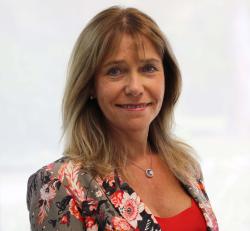
Prof. Celeste Saulo is a scientist in the field of meteorology, climatology, and numerical modeling, with vast experience in research, teaching, and mentoring. Her strategic vision about enhancing the impact of meteorology on society led her career through the University from teaching assistant, to the Director of the Department of the Atmosphere and Oceans Sciences at the University of Buenos Aires, Argentina. In 2014, Celeste was appointed Director of the National Meteorological Service. Since then, she has served the World Meteorological Organization in different roles. In 2018, Celeste was elected Vice-President of the Organization and chaired the WMO-Research Board from 2019 till 2021.
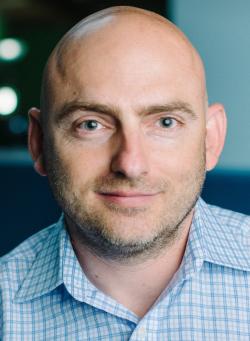
Mr. Peter Platzer is the CEO at Spire Global. He co-founded Spire in 2012 with a vision to provide satellite-powered data solutions to problems on earth. The company’s audacious goal is to double global GDP growth by eliminating the negative economic impact from inaccurate weather forecasts in the era of Climate Change. Peter is now regarded as one of the pioneers in launching small form factor satellites into space and was named by President Obama a White House Champion of Change in 2013. Prior to launching Spire, Peter trained at European Council for Nuclear Research (CERN) and the Max Planck Institute before turning to business with the Boston Consulting Group in Europe and Asia, and serving as a quantitative investment manager for almost a decade on Wall Street. Peter received an M.S. in Physics from the Technical University of Vienna, an M.B.A. from Harvard, where he was a Baker scholar, and an M.Sc. cum laude in Space Science from International Space University (ISU), Strasbourg. He also serves as a Career Coach at Harvard Business School. His publications and patents span Computational Physics, Nano-satellite Technologies, and climate change adaptation.
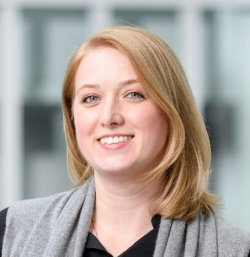
[Moderating the discussion] Ms Anna-Maria Bogdanova is a Disaster Risk Management Specialist in the Latin America and the Caribbean region. She leads and provides operational support to projects and teams working on various aspects of disaster risk management, hydromet and early warning services in the Caribbean region, Central America and Russia. She works with international organizations, donors and partnering institutions. Prior to this position, Anna-Maria worked as an Operations Officer and Disaster Risk Management Specialist in the Global Facility for Disaster Reduction and Recovery. Before that, Anna-Maria worked in the Russia Country Unit of the World Bank. She has joined the World Bank in 2004.
The GWE Forum opens its 2022 Roundtable discussions on how hydromet services address today’s societal priorities – decarbonization, sustainable growth, and strengthening resilience to natural hazards.
In this first event of 2022, we asked a group of economists and leaders in the field of meteorology for their opinions of what the world will look like in 2030 and beyond.
